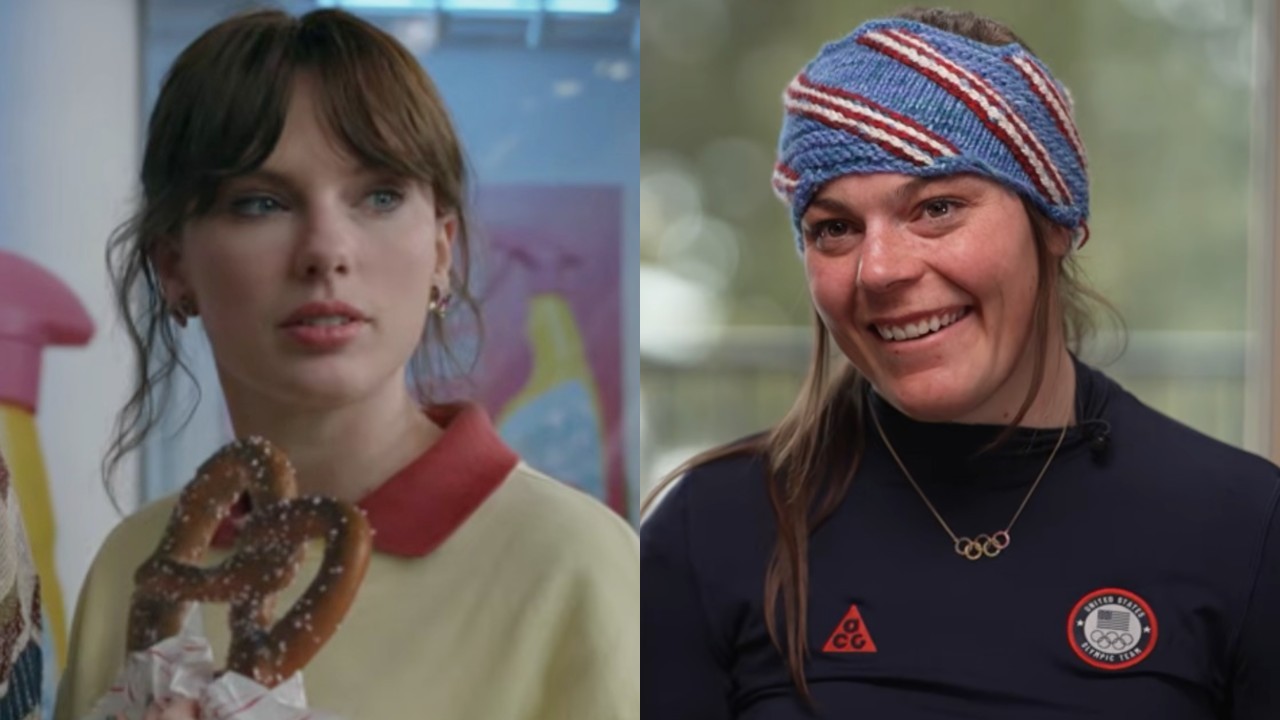Emma and Dexter are the kind of best friends a thousand romantic comedies are made of. A straight man and a straight woman who almost got it on during college, but regressed into a friendship that remains forthrightly, awkwardly platonic over the years. You know this situation is never going to last, and on some level they do too, but One Day does the audience a favor by not taking things the way you've seen a hundred times before. Yes, Lone Scherfig's film includes tearful revelations, kisses in the street and other boyfriends and girlfriends who are just so wrong for our main pair, but it's also sharper and more mature about love--in all its forms-- and the way it can shift and develop over time. Unfortunately the movie is also a shallower facsimile of the novel by David Nichols, who also wrote the screenplay, but it hits enough of the same notes and is handsomely packaged enough to stand fairly well on its own.
So much relies on the chemistry between our Emma and Dexter, Anne Hathaway and Jim Sturgess, and though both Hathaway's mousiness and British accent seem iffy at times, the two are pretty good at pretending to be crazy about each other. The movie starts strong on the heartbreakingly, gorgeously shot streets of pre-dawn Edinburgh in 1989, where Emma and Dexter are winding down a post-graduation party and wind up stumbling back to Emma's cramped dorm room bed. As the sun rises Dexter points out that it's July 15, St. Swithin's Day, and suddenly we're swept to that day a year later, when Emma is working a shitty job at a shitty Mexican restaurant in London while privileged Dexter travels the world. It's the first of 20 time jumps total, as we meet up with Emma and Dexter on July 15 each year until 2010.
Emma's life is one familiar to a lot of post-collegiates, working that shitty job far longer than she should have, falling almost by accident into a relationship with a doofy guy (Rafe Spall) who's way beneath her, and harboring a dream of writing children's books while being way too shy to actually follow through with it. Golden boy Dexter, on the other hand, stumbles into a high-paying job as a caddish TV presenter, though it also comes with a raging alcohol problem and the inability to deal with actual life problems like the death of his mother (Patricia Clarkson, underused). When we meet up with them on July 15 Emma and Dexter are sometimes together, vacationing amid serious sexual tension in the south of France or fighting in the street after a swanky dinner where Dexter is too drunk to care he's insulted his oldest friend. Other times they're living totally separate lives, Emma happily accepting a modest job as a schoolteacher and Dexter entering into a shotgun marriage that seems doomed from the start. Even when their lives seem to be turning away from each other, though, there are many twists left to go-- life is funny like that sometimes.
Nichols is very, very faithful to his own book in the adaptation, but there's only time for so much, and scenes in the film that felt detailed and emotionally rich often fly by without making their desired impact. Dexter's relationship with his family feels especially short-shrifted, making his transformation from carefree playboy to devoted family man feel entirely rote, and though Hathaway gets some good zingers as Emma, she never emerges quite as the prickly, whip-smart heroine she ought to be. Scherfig uses several opportunities to translate the book's deep emotions into cinema-- the aforementioned Edinburgh streets and that city's landmark mountain Arthur's Seat are especially effective locations-- but it's a talky book translated into a talky movie that's sometimes more clever than it is effective.
The primary feeling of One Day, though, is somehow wishing it could be better-- that Sturgess had maintained some of his leading man reserve from The Way Back and better commanded the screen, that Hathaway had allowed a little more spark into Emma, and especially that Scherfig and Nichols had found better ways to recreate the book's lived-in, confident charm. Telling a love story over the course of 20 years is no easy task, and One Day had everything it needed to pull it off, but loses something crucial in the leap from page to screen.
Your Daily Blend of Entertainment News
Staff Writer at CinemaBlend


